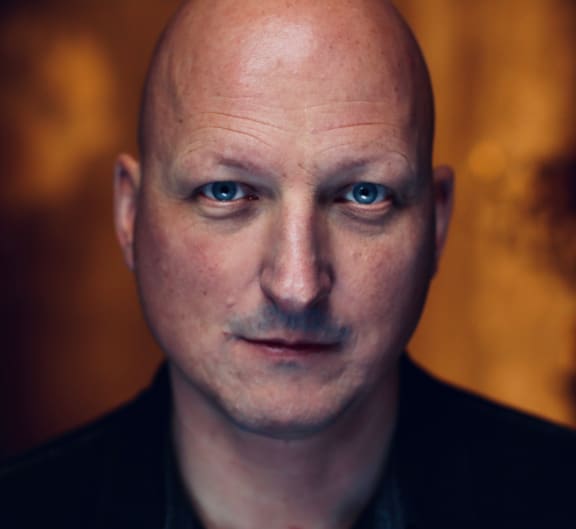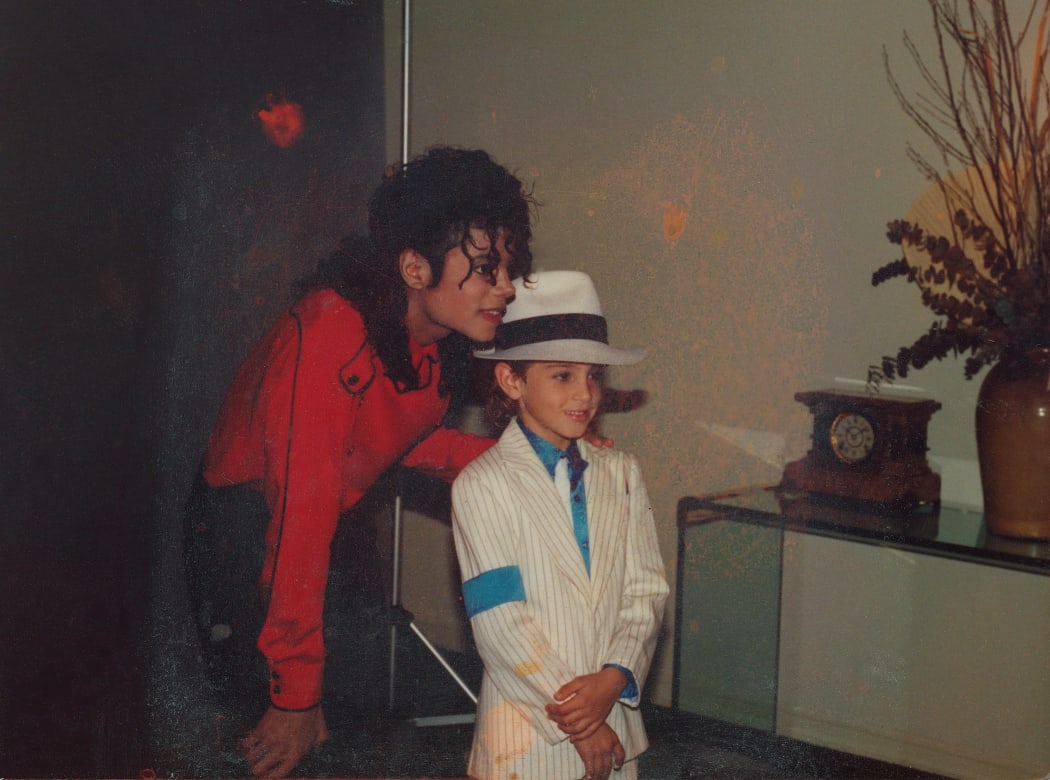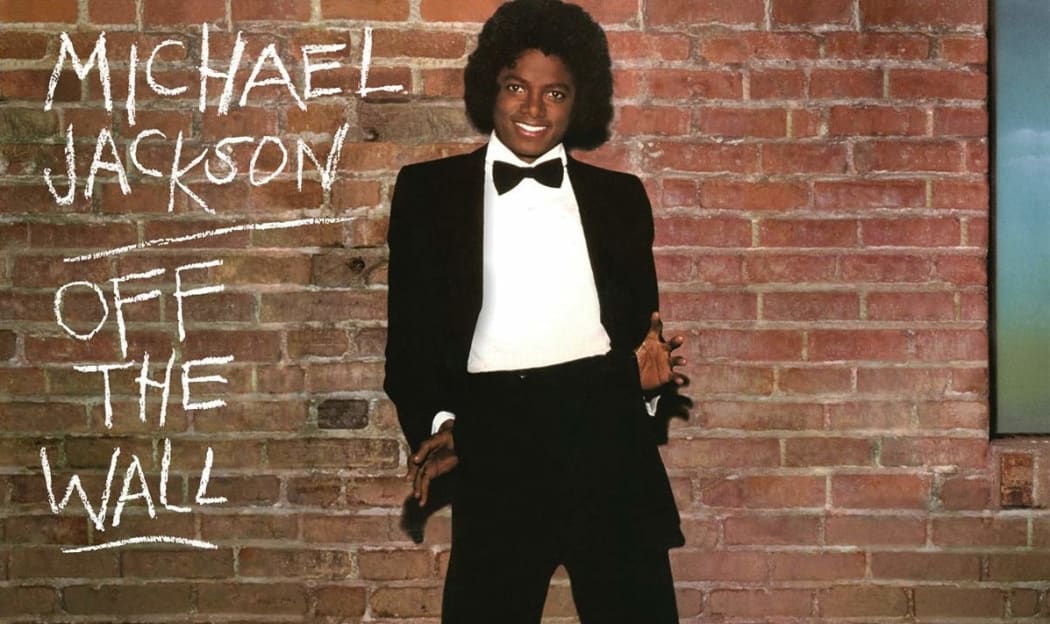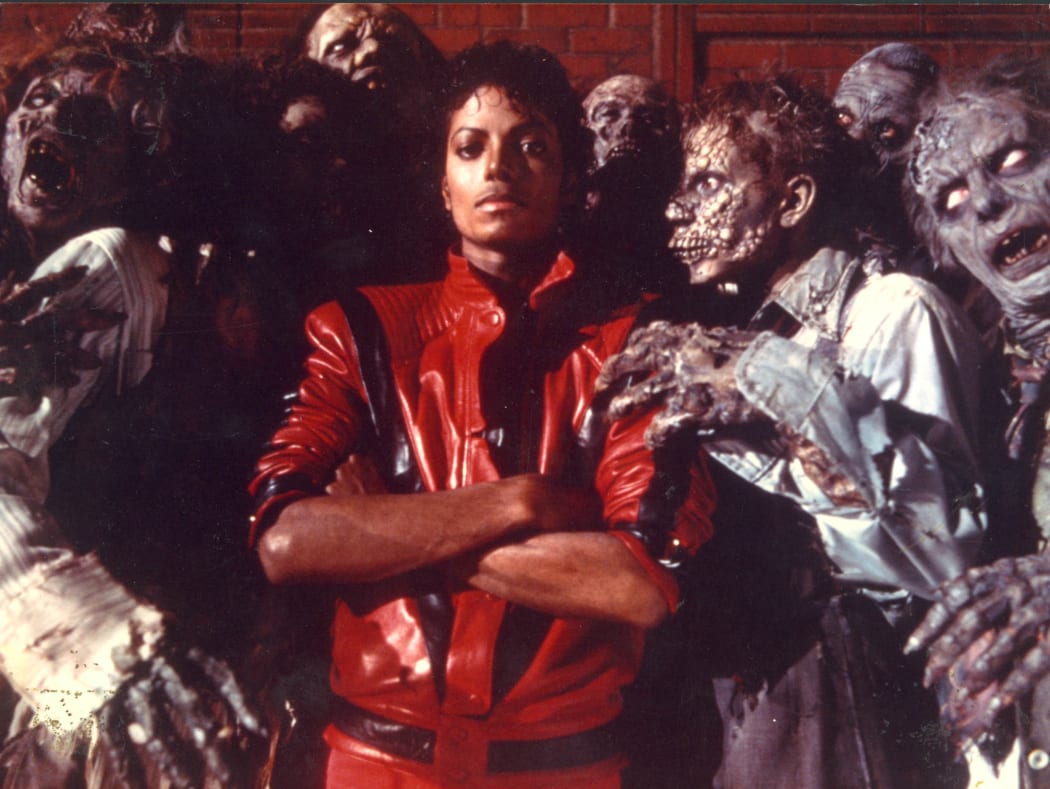Michael Jackson was clever and succeeded in convincing children they were not being abused, the director of the Leaving Neverland documentary about the abuse has told RNZ.

Dan Reed, director of Leaving Neverland Photo: Dominique Desrue
The programme being broadcast tonight on TVNZ 1 interviews Wade Robson and James Safechuck, who describe being befriended, groomed and abused by Jackson.
In separate but parallel stories, Safechuck at age 10 and Robson at age seven were each befriended by Jackson when he was at the height of his fame.
Director Dan Reed told Sunday Afternoon's Jim Mora the aim of the documentary was to explain how paedophiles work and how they manipulate their victims into concealing the abuse.
He said Jackson was very persuasive.
"The little boys being abused by Michael didn't feel that they were being harmed or abused. They felt - you know, they'd been seduced so they felt just like adults feel in a relationship.
"It's sad to say it and it's horrific to say it but they were enjoying the attention and they felt that they had a very precious and special relationship with their abuser.
"He was kind and the kindness that he displayed I think sort of still resonates and you know the magnitude of his fame, his personality, his charisma, and I think they're still struggling with what to make of that."
He said it was this persuasiveness that meant Robson supported Jackson in a trial against him in 2005.
"He still loved Michael Jackson in 2005. He was 22, he still felt an immense amount of loyalty to the man who had nurtured his talents, who had done all these wonderful things for him sadly with the aim of sexually abusing him.
"He says that he wished that he'd had the strength to say the truth on the witness stand ... it would have involved turning his life upside down.

Michael Jackson and Wade Robson Photo: Wade Robson archive/Amos Pictures
He said the entire foundation of Robson's life and his family's life hinged on the relationship with Michael.
"To suddenly get up on the witness stand and say ... he was actually a monster who raped me, that was beyond Wade's strength at the time."
He said it wasn't until Robson became a father himself that he had a change of perspective.
"He describes this transformative moment in the film he looks at this defenceless, vulnerable little being and begins to imagine Michael doing to this little boy what he'd done to little Wade at the age of seven.
"I think that drove him to mention this to his psychotherapist and that's the beginning of his awakening. Now he is completely unambiguous about what happened."
'People who enabled everything he did'
Reed said he believes Jackson's staff and family enabled his abuse over many years.
"The Jackson organisation and the Jackson camp, they've always portrayed Michael as the victim and they've always slimed and smeared the children who came forward - there's been at least five so far.
"So, it feels almost like heresy to challenge him in any way."

Photo: wikipedia
He said the fact the Jackson foundation, which is suing over the film, has clung so closely to the disparity between Robson's testimony and his statements in the film is shocking.
"What they're saying presumably, and I can't believe this is what they mean, they're saying 'look, Wade is a perjurer ... they're saying that in reality he lied on the witness stand.
"We know that he was defending Michael - then they must be saying that Michael was a pedophile."
"There's stacks and stacks and stacks of evidence and the family themselves don't deny that this man was spending night after night after night with little boys."
"Jackson was surrounded by people who enabled everything he did. There was members of his staff who are on the record as having warned newcomers to the estate 'never leave your child alone with Michael' and that's on the record."
'It was important firstly to confront people with what it really means'
Reed said many fans of Jackson's music closed their eyes to the stories being told by the children, and it was important for the film to accurately portray abuse.
"You have to be careful for putting anything like that on television: it can backfire, it can disgust people or it can feel exploitative.
"I do think it was important firstly to confront people with what it really means - what this very serious crime actually involves against children, and secondly to draw a line between the image that Jackson portrayed of himself as this man who'd never had a childhood and had this innocent love for children.
"We needed people to understand that this was sex - it was the kind of sex that grownups have - and you need to describe it in some detail."
However, he said he was not advocating for people to stop playing Jackson's music, as was done on some New Zealand radio stations.
"It's hard for people because Michael was so talented and such a huge figure ... his songs are almost a part of the fabric of our culture.

Michael Jackson's 'Thriller' (1983) Photo: Archives du 7eme Art / Photo12
"Blind devotion for Michael makes people disbelieve these - essentially, children - who have been terribly hurt. People ask 'why should we believe them'. Why should we disbelieve them?"
He said people had to make those choices about Jackson's music on their own.
"Great artists are often tormented, strange people and I guess their isolation from society gives them a different perspective.
"I'm not a book burner by heart, I'm not saying we should never again play the music of Michael Jackson - I think that would be foolish and inappropriate ... it's really a film about these two families coming to terms with what their sons tell them really happened.
"Michael had been abused himself and certainly because he was lying about all these terrible acts he was committing with children, that's a very corrosive thing to hide in your soul and I think it would have eaten away at him.
He said what he set out to do was to reveal a poorly understood truth about the psychology of child sexual abuse.
"It's scary, it's big, people's reactions are very intense, sometimes even violent.
"I cling to the fact that we've made something that will educate people and open a lot of people's eyes and enable people to understand the stories of survivors of child sexual abuse.
"That's important. If more people understood it there'd be less opportunity for predators to do their thing."
Where to get help:
Need to Talk? Free call or text 1737 any time to speak to a trained counsellor, for any reason.
Lifeline: 0800 543 354 or text HELP to 4357
Suicide Crisis Helpline: 0508 828 865 / 0508 TAUTOKO (24/7). This is a service for people who may be thinking about suicide, or those who are concerned about family or friends.
Depression Helpline: 0800 111 757 (24/7) or text 4202
Samaritans: 0800 726 666 (24/7)
Youthline: 0800 376 633 (24/7) or free text 234 (8am-12am), or email talk@youthline.co.nz
What's Up: online chat (3pm-10pm) or 0800 WHATSUP / 0800 9428 787 helpline (12pm-10pm weekdays, 3pm-11pm weekends)
Kidsline (ages 5-18): 0800 543 754 (24/7)
Rural Support Trust Helpline: 0800 787 254
Healthline: 0800 611 116
Rainbow Youth: (09) 376 4155
If it is an emergency and you feel like you or someone else is at risk, call 111.
Sexual Violence:
NZ Police
Victim Support 0800 842 846
Rape Crisis 0800 88 33 00
Rape Prevention Education
HELP Call 24/7 (Auckland): 09 623 1700, (Wellington): be 04 801 6655 - 0
Safe to talk: a 24/7 confidential helpline for survivors, support people and those with harmful sexual behaviour

